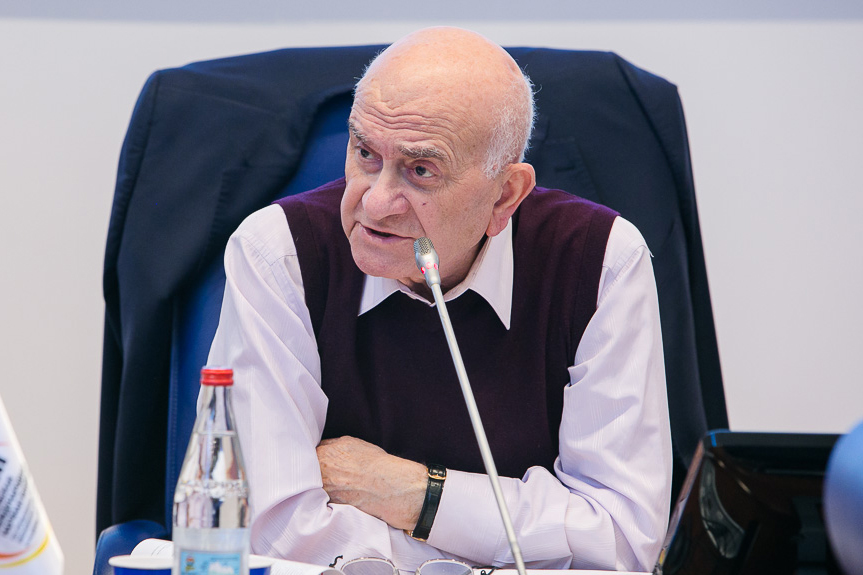‘At the Conference We’ll Be Talking about Different Facets of Life in Russia: From New Investment Policy to the Digital Economy’

Today, the XIX April International Academic Conference on Economic and Social Development begins. HSE Academic Supervisor Evgeny Yasin talks about the main topics that will be covered at the conference, as well as some of the participants.
The April Conference, above all, is an academic event and an opportunity for researchers from across Russia and other countries to express their views on the problems of contemporary economics. As we traditionally do, we will hold an interesting plenary session with representatives from the Ministry of Economic Development, Ministry of Finance, Center for Strategic Research, Sberbank and the Central Bank of Russia covering the development potential of Russia’s economy. In particular, Maxim Oreshkin, Russia’s Minister of Economic Development and one-time student at HSE, will speak on this topic.
Today, HSE is not only focused on economics, as it was 15-20 years ago. Whereas the first April Conferences concentrated solely on economic issues, the situation has changed somewhat today. We’ll be talking about different facets of life in Russia – from new investment policies to issues surrounding the digital economy and demographics.
In previous years, the global economic situation was developing in such a way that we could rely on oil. Today, the situation is different, and we need to understand the development path we are planning that will allow us to achieve economic growth and increase prosperity. I am convinced that human capital should play a very important role for the development of Russia’s economy in the coming years. Economists and sociologists have long been studying this phenomenon, including by keeping in mind the education of people in terms of their economic interests and their interest in certain institutions that increase the level of knowledge of a particular person. It is human capital that is becoming the main force in the development of Russia’s economy, which means that society should be interested in making this capital rise up and be placed into circulation. A plenary session entitled ‘Human Capital and Social Policy’ is dedicated to this topic; the main speakers are our rector, Yaroslav Kuzminov, and the director of the HSE Institute for Social Policy, Lilia Ovcharova. We anticipate that the discussion will be attended by Deputy Prime Minister Olga Golodets.
I plan to attend the speech by Russian Finance Minister Anton Siluanov, who will talk about the role of budget policy in ensuring economic growth. In my opinion, this will be one of the most important and interesting plenary sessions, since the budgetary sphere is one of the most painful today. I hope that we will have a meaningful conversation with colleagues who have been invited from the State Duma's Control and Budget Committee.
I am also interested in the other plenary sessions, in particular, the report concerning the new phase of anti-monopoly policy in Russia. The head of the Russia’s Federal Anti-Monopoly Service, Igor Artemyev, will unveil the 5th anti-monopoly package. I also plan to attend the meeting where the challenges and prospects involving structural policy will be discussed. In my view, it is very important to clearly identify the priority sectors of the economy that will receive special attention from the state and business, and what kind of policy should be pursued with respect to them. I look forward to the report by Yuri Simachev, HSE’s Director of Economic Policy.
As I already mentioned, the format of the conference does not stipulate emphasis on any one key topic. The conference will also include sessions devoted to the national data management system and interaction between society, business and the state in the digital age. Problems, prospects and challenges concerning education will also be addressed, as will the technological future of Russia’s economy and structural policy. The agenda is quite rich and diverse, and I hope that I’ll be able to attend most of the meetings and sessions.

